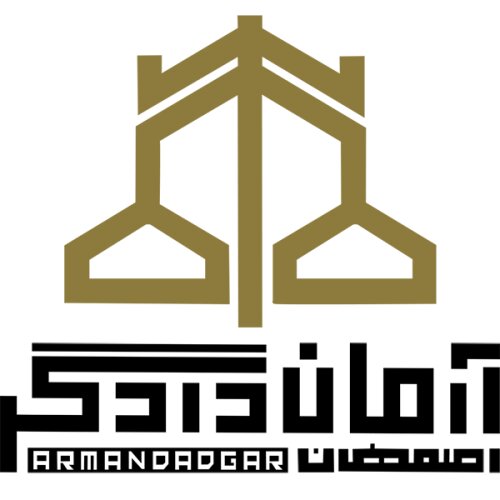Best Nonprofit & Charitable Organizations Lawyers in Iran
Share your needs with us, get contacted by law firms.
Free. Takes 2 min.
Or refine your search by selecting a city:
List of the best lawyers in Iran
About Nonprofit & Charitable Organizations Law in Iran
In Iran, nonprofit and charitable organizations play a significant role in addressing social issues, providing relief, and supporting various community projects. These organizations are governed by specific laws and regulations to ensure that they operate within the legal framework while fulfilling their charitable missions. The legal landscape for such entities is primarily influenced by Islamic law and local civil laws, which outline the establishment, management, financial oversight, and accountability of nonprofits and charities. Understanding these regulations is crucial for those who wish to form or manage such organizations in Iran.
Why You May Need a Lawyer
There are several scenarios where legal assistance may be essential for individuals and groups involved with nonprofits and charitable organizations in Iran:
- Establishing a Nonprofit: The process of registering a new nonprofit organization can be complex, requiring an understanding of legal requirements and documentation.
- Compliance Issues: Organizations must adhere to specific governance and financial reporting standards. Legal advice may be needed to ensure compliance and avoid penalties.
- Taxation: Nonprofits often have different tax obligations. A lawyer can help manage tax matters and ensure proper filings.
- Contractual Agreements: Entering into agreements with partners, donors, or service providers often requires drafting and reviewing contracts to protect the organization's interests.
- Dispute Resolution: Legal interventions may be necessary to resolve internal disputes or conflicts with external parties.
Local Laws Overview
Key aspects of local laws relevant to nonprofit and charitable organizations in Iran include:
- Registration Requirements: Organizations must register with relevant governmental bodies, providing detailed founding documents and information regarding their intended activities.
- Governance Structure: The laws specify the required governance framework, including board composition, meetings, and decision-making processes.
- Financial Accountability: Strict financial record-keeping and transparency are mandated to ensure resources are used appropriately.
- Permitted Activities: Nonprofits are often limited to activities specified in their charter, and engaging in commercial activities can have legal repercussions.
- Regulatory Compliance: Periodic reporting to governmental agencies is required, and compliance with all applicable regulations is essential to maintain status.
Frequently Asked Questions
1. How do I start a nonprofit organization in Iran?
To start a nonprofit in Iran, you need to draft a detailed proposal outlining your mission and activities, prepare the necessary documents for registration, and submit these to the relevant authorities for approval.
2. What are the financial reporting requirements?
Nonprofits in Iran must maintain accurate financial records and submit annual financial statements to demonstrate transparency and proper use of funds.
3. Can nonprofits engage in commercial activities?
Generally, nonprofits are limited to their specified charitable activities. Engaging in commercial activities can compromise their nonprofit status and result in legal issues.
4. Are there specific tax benefits for nonprofits?
Nonprofits may be eligible for certain tax exemptions, but they must comply with tax laws and file the appropriate returns to benefit from these exemptions.
5. What rights do members of a nonprofit have?
Members typically have rights outlined in the organization's bylaws, including voting rights and the ability to participate in meetings and decision-making processes.
6. How can a nonprofit ensure compliance with Iranian laws?
Compliance requires understanding local laws and regulations, maintaining accurate records, and meeting all reporting requirements. Seeking legal advice can facilitate compliance.
7. What are the common legal challenges faced by nonprofits?
Challenges include navigating complex legal requirements, managing financial transparency, and handling disputes both internally and externally.
8. Is it necessary for nonprofits to have a legal advisor?
While not mandatory, having a legal advisor can be beneficial in navigating legal complexities and ensuring compliance with local laws.
9. How are donations to nonprofits regulated?
Donations must be managed transparently, with records kept of all incoming funds, how they are used, and ensuring they are spent in line with the organization's objectives.
10. Can foreign entities establish nonprofits in Iran?
Foreign entities face additional scrutiny and must comply with specific regulations to establish and operate a nonprofit within Iran.
Additional Resources
For those needing further guidance in the field of non-profit and charitable organizations in Iran, the following resources may be helpful:
- Iranian Ministry of Interior: The primary government body overseeing the registration and regulation of nonprofit organizations.
- Iranian Bar Association: Provides resources and can assist in finding legal experts specializing in nonprofit law.
- Legal Publications: Studying available legal guides and publications specific to nonprofit law in Iran.
Next Steps
If you require legal assistance concerning nonprofit and charitable organizations in Iran, consider the following steps:
- Consult with a local attorney specializing in nonprofit law to understand your legal obligations.
- Engage with governmental bodies to ensure your organization complies with all registration and ongoing operational requirements.
- Join local or international nonprofit networks to gain insights and best practices for operating in Iran.
Taking proactive legal steps ensures that your nonprofit can operate effectively and in accordance with Iranian law.
Lawzana helps you find the best lawyers and law firms in Iran through a curated and pre-screened list of qualified legal professionals. Our platform offers rankings and detailed profiles of attorneys and law firms, allowing you to compare based on practice areas, including Nonprofit & Charitable Organizations, experience, and client feedback.
Each profile includes a description of the firm's areas of practice, client reviews, team members and partners, year of establishment, spoken languages, office locations, contact information, social media presence, and any published articles or resources. Most firms on our platform speak English and are experienced in both local and international legal matters.
Get a quote from top-rated law firms in Iran — quickly, securely, and without unnecessary hassle.
Disclaimer:
The information provided on this page is for general informational purposes only and does not constitute legal advice. While we strive to ensure the accuracy and relevance of the content, legal information may change over time, and interpretations of the law can vary. You should always consult with a qualified legal professional for advice specific to your situation.
We disclaim all liability for actions taken or not taken based on the content of this page. If you believe any information is incorrect or outdated, please contact us, and we will review and update it where appropriate.
Browse nonprofit & charitable organizations law firms by city in Iran
Refine your search by selecting a city.















